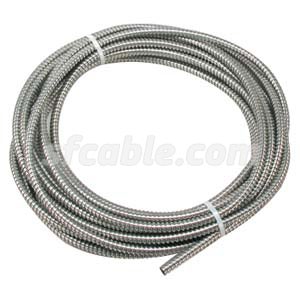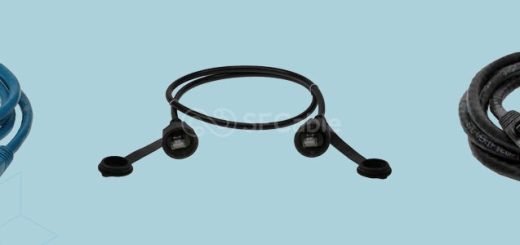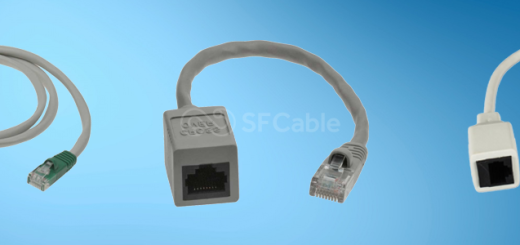Always Use Armored Cables for all your cabling needs
Wires enclosed in a metal covering are called armored cables. Inside the flexible metal covering, are an insulated hot and neutral wires and a bare bonding wire. Armored fiber-optic cables are often placed in a network for an added automated protection. The armoring is of two types: corrugated (Steel Wire Armor) and interlocking (Aluminium Wire Armor). Corrugated armor is a coated steel tape folded around the cable longitudinally found in outdoor cables.
It offers an extra automated and rodent protection. Interlocking armor is an aluminum armor that is helically wrapped around the cable and found in indoor and indoor/outdoor cables. It offers virility and a strong crush resistance. A single core armored cable will always have a layer of aluminium wire armor (AWA) instead of steel wire armor (SWA) as the steel in SWA has a much lower conductivity and thus a higher resistance than aluminium.
If it were used in a single core cable, the magnetic field generated would induce an electric current in the armor and along with the increased resistance, would have caused a heating effect. AWA is non-magnetic in nature and therefore has a much better conductivity (lower resistance), so it can conduct these induced currents more efficiently than steel. SWA is used in multicore armored cables because the electromagnetic fields from the adjoining cores effectively cancel each other out, meaning less current is induced into the armor.
In the course of fiber-optic installations, there is a need to provide extra shielding for the cables due to the installation environment. The environment may be underground or inside the buildings with obstructed passages. Installing an armored fiber-optic cable in such a setting would provide an extra shielding for the optical fiber and add a security to the network, lessen the risk of downtime and cable damage due to rodents, construction work and any other external factor.
Though there are many benefits of installing armored fiber-optic cables but the need to bond and ground the cable is one major drawback. This drawback too can solved by using a dielectric-armored cable. One can find the armored cables everywhere and in everything ranging from transmission, power, distribution networks and the renewable energy sector to the oil, gas and petrochemical, water treatment and transport industries. Thus, the use of these cables has almost reached all the sectors equally.



